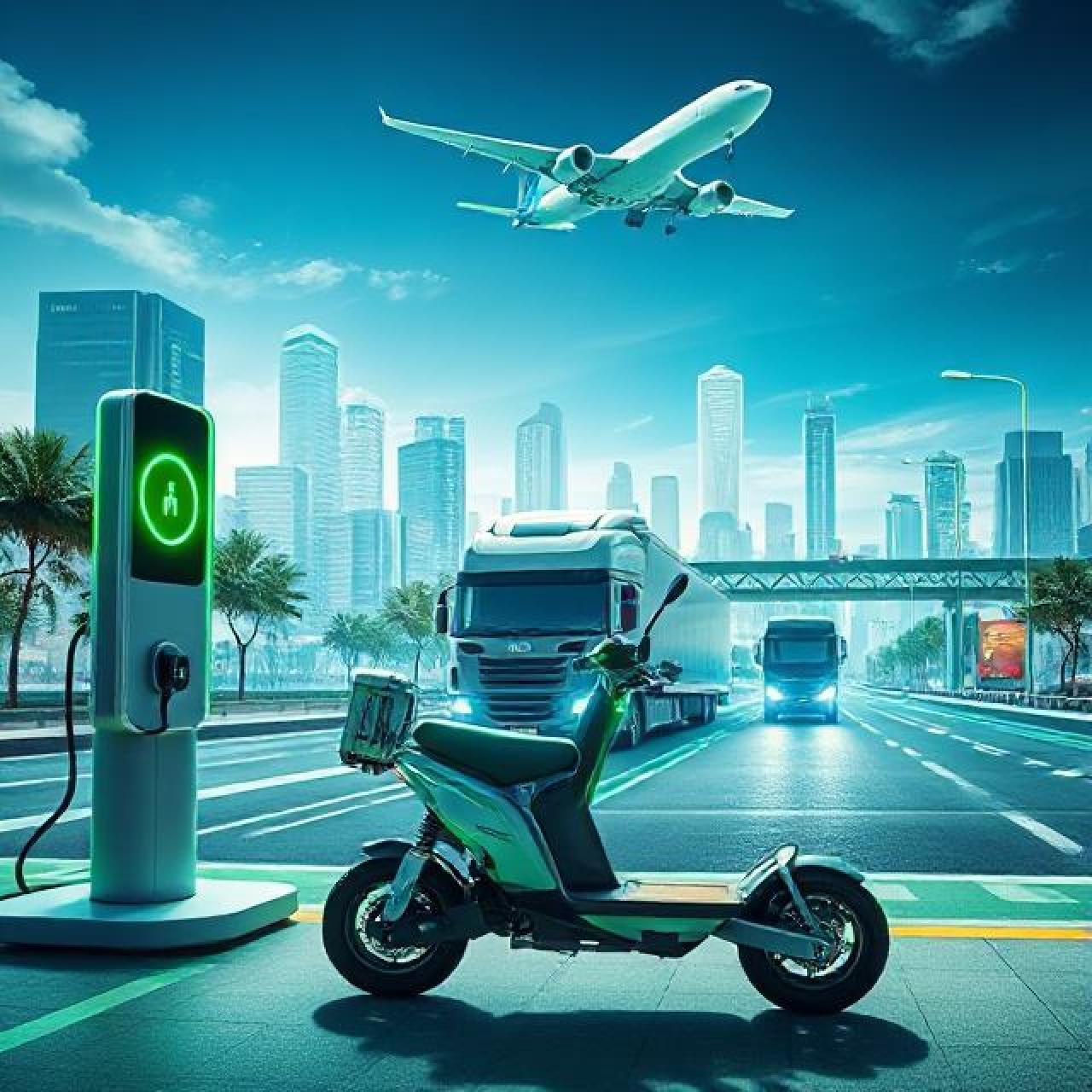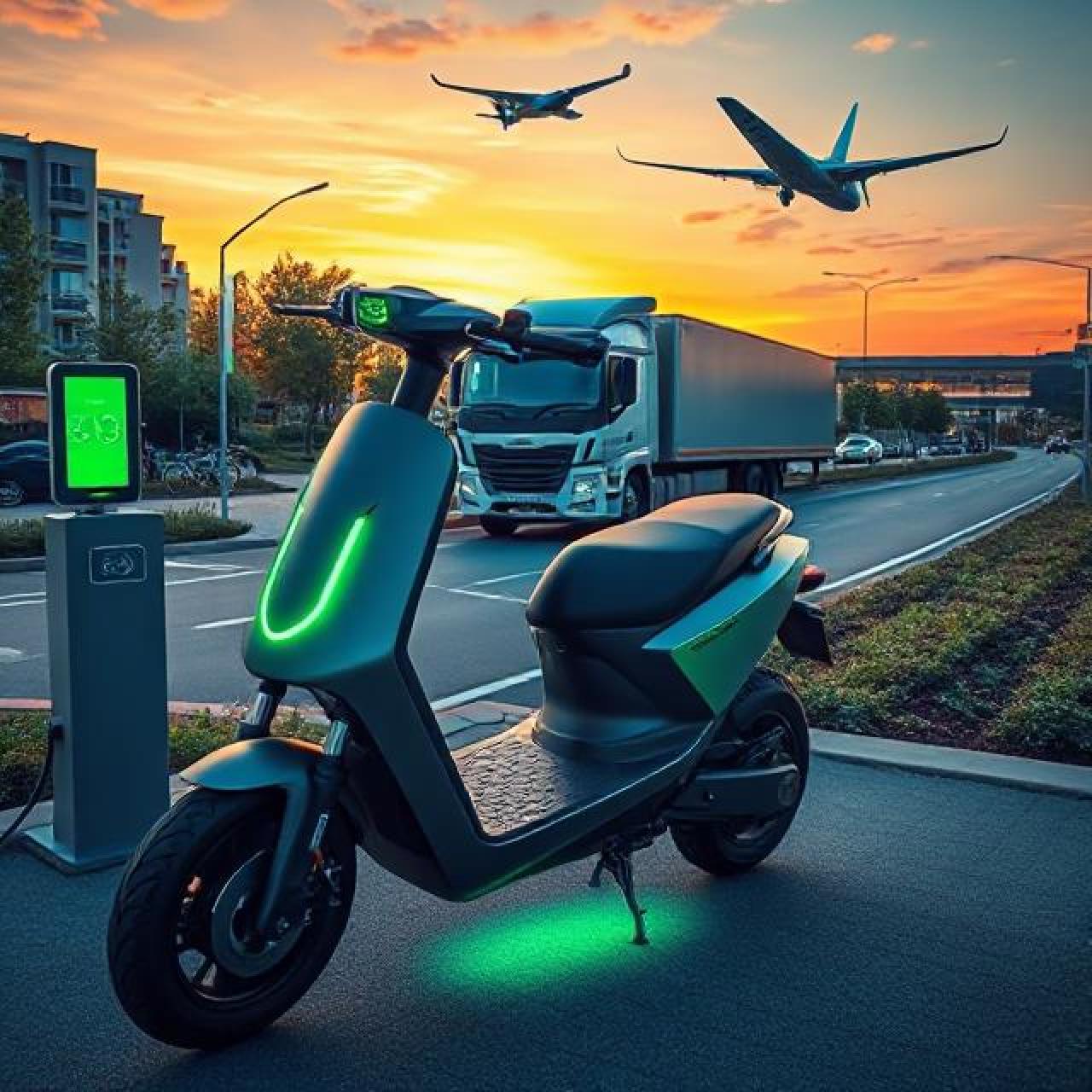Advancements in Electric Mobility: Scientific Breakthroughs Shaping Sustainable Transportation
- 11 Sep 2025
- 155
- Electric Vehicles , EV Sales Ireland
Advancements in Electric Mobility: Scientific Breakthroughs Shaping Sustainable Transportation
As the world shifts toward sustainable solutions, the transportation industry is experiencing a remarkable transformation driven by cutting-edge research and technological innovations. From electric scooters to airplanes, recent advancements are paving the way for a cleaner, smarter, and more efficient future of mobility.
Breakthroughs in E-Scooter Technology
The development of electric scooters is progressing rapidly, with researchers focusing on increasing their range, safety, and durability. One of the most promising innovations is the advent of solid-state batteries, which can store twice the energy of traditional lithium-ion batteries. This means that e-scooters could soon travel over 80 kilometers on a single charge, reducing the frequency of recharging and making micro-mobility more practical for everyday use. Additionally, new lightweight materials such as composites and advanced alloys are being incorporated into scooter frames, making them stronger and safer without adding unnecessary weight.
Furthermore, the integration of artificial intelligence and Internet of Things (IoT) technologies is creating smarter e-scooters. These vehicles can now monitor their own health in real time, predict maintenance needs, and optimize battery usage, making urban transportation safer and more efficient.
The Evolution of Electric Trucks
The freight transportation industry is also undergoing significant change with the development of electric trucks. Recent research focuses on improving battery technology, especially with solid-state batteries that provide higher energy density and longer lifespan. These advancements could enable long-haul electric trucks to travel over 1,000 kilometers on a single charge, making electric logistics a viable alternative to traditional diesel-powered trucks.
Fast-charging technology is another area of intense innovation. Companies are working on ultra-rapid chargers capable of replenishing a truck’s battery in under twenty minutes. When combined with sophisticated energy management systems powered by artificial intelligence, these solutions can significantly reduce operating costs and environmental impact. Meanwhile, new charging infrastructure, including ultra-fast stations capable of delivering hundreds of kilowatts, is being deployed to support the expansion of electric freight networks globally.
Electric Aviation: Soaring Toward a Greener Sky
The aviation industry is witnessing groundbreaking developments with electric and hybrid-electric aircraft prototypes. Leading companies like Airbus and Pipistrel have successfully tested regional electric planes capable of flying 500 kilometers, with future models targeting ranges exceeding 600 kilometers on a single charge. These advancements not only reduce carbon emissions but also significantly decrease noise pollution, making regional flights more sustainable and community-friendly.
Innovations in electric motors and control systems are making aircraft quieter, more efficient, and suitable for short to medium-haul routes. The use of advanced materials such as graphene and solid electrolyte batteries is further enhancing aircraft weight reduction, durability, and flight performance. As these technologies mature, electric aviation will become an integral part of regional transportation networks.
Toward a Sustainable Transportation Ecosystem
All these scientific advancements and technological innovations are weaving together to create a future where vehicles are safer, longer-lasting, and more environmentally friendly. With solid-state batteries poised to become the industry standard within the next decade, vehicle ranges will extend significantly while charging times decrease. The development of nanomaterials and graphene will make vehicles lighter and more efficient, reducing energy consumption and operational costs. Meanwhile, ultra-fast, wireless charging stations will enable vehicles to recharge seamlessly on the go, further encouraging adoption and reducing downtime.
These innovations are complemented by a growing focus on recycling batteries and integrating renewable energy sources into charging infrastructure, ensuring that the entire ecosystem moves toward greater sustainability. As these technologies continue to evolve, the vision of a cleaner planet with smarter, connected transportation systems becomes increasingly tangible. The future of mobility is shaping up to be not just innovative but profoundly transformative, making sustainable, accessible, and efficient travel an achievable reality for all.


